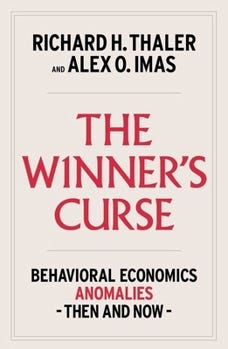The Kmart mindset in local government
When fighting political battles becomes the goal, communities lose—what zero-sum thinking in politics gets wrong, again and again.
In the late 1990s, I covered Kmart's attempt to claw back market share from Walmart—staking out store floors, paging through earnings calls, and interviewing executives who believed matching every low price would stem the losses. Quarter after quarter, margins thinned and shoppers drifted away. By 2003, bankruptcy confirmed what the spreadsheets had been signaling all along.
Watching that play out taught me something about zero-sum thinking that I keep seeing today on city councils and school boards, where "defeating the other side" too often eclipses addressing community needs. In my latest Dallas Morning News column, I trace how this same mindset can drain a civic balance sheet just as surely as it finished off a once-dominant retailer.
“I covered the Kmart–Walmart clash in the late 1990s and early 2000s, when Kmart, once a retail juggernaut, was bleeding customers, revenue and jobs. Leadership bet the house on beating Walmart with low prices. By 2003, that strategy had collapsed. Stores across the country, including in North Texas, were closing fast.
“A regional vice president I spoke with in 2002 told me plainly that even when they matched Walmart’s prices, margins were so thin that bankruptcy was always on the horizon.
“While Kmart was fundamentally outmatched by Walmart’s operational efficiency, its decline was accelerated, in part, because leadership treated its rival like an enemy to destroy rather than a competitor to outthink. Just as Kmart’s zero-sum thinking blinded it to customer needs, politicians focused on defeating opponents often lose sight of constituent needs.
“That same winning-solves-our-problems mentality, once a campaign soundbite, has found its way into city councils and school boards. Too many local officials now chase quick political wins instead of long-term outcomes. In communities throughout North Texas, we simply can’t afford that mindset.”
Quote of the week
In many ways, becoming a politician is akin to being a recent college graduate: Idealism is overrun by a flood of reality. New politicians quickly—and often painfully— learn that a large part of their job is, well, staying elected, which means they cannot afford to run afoul of key segments of their base. What began as “a commitment to serve in the best interest of my constituents,” quickly becomes “I will serve in the best interests of my constituents, but only when it’s politically expedient.”
Which helps explain why I love this quote from former a Texas House member:
“Most Texans want to believe that their elected representatives place greater importance on policy than politics. Unfortunately, many of our public servants are more interested in doing what is politically expedient rather than what is best for the community that they represent.
“The very first lesson a partisan elected official learns in office is to tread cautiously when diverging, even slightly, from party orthodoxy. Whether it be gun control, abortion, border security or, in this instance, capital punishment, any deviation from the positions set forth in the party platform could be fatal.”
Jason Villalba, CEO of the Texas Hispanic Policy Foundation and a former member of the Texas House
What I’m reading

I’ve spent years helping executives, founders, and organization heads navigate complex decisions, and if there’s one truth that keeps surfacing, it’s this: People don’t act like economic models say they should. In The Winner’s Curse, Richard Thaler places that disconnect under the microscope, showing how we consistently deviate from “rational actor” expectations—and why those deviations aren’t random, but patterned, predictable, and often costly. Whether it’s overbidding at auction, clinging to sunk costs, or misjudging fairness, Thaler’s insights explain the quirks I’ve seen play out in boardrooms and ballot boxes alike.
Lean and loaded. The Winner’s Curse delivers deep insight in a package that’s short enough to be enjoyed over a long weekend. Despite its length, however, it’s rich details could lead you to rethink your next big decision.
Behavioral x-ray. Thaler walks us through real-world anomalies, from market bubbles to negotiation blunders, that standard economics can’t explain, but behavioral science can.
Mental model shift. Instead of chalking up errors to “irrationality,” Thaler shows how bias, fairness, and framing shape behavior, plus how recognizing those forces can improve outcomes in business, policy, and everyday life.
In a nutshell
The Winner’s Curse isn’t simply about auctions; it’s about understanding the invisible forces that warp decisions and markets alike. Thaler makes the case that better outcomes begin with more realistic models of human behavior. Whether you’re managing millions or just trying not to overpay in your next business deal, this book helps you see the blind spots, and sidestep them.




